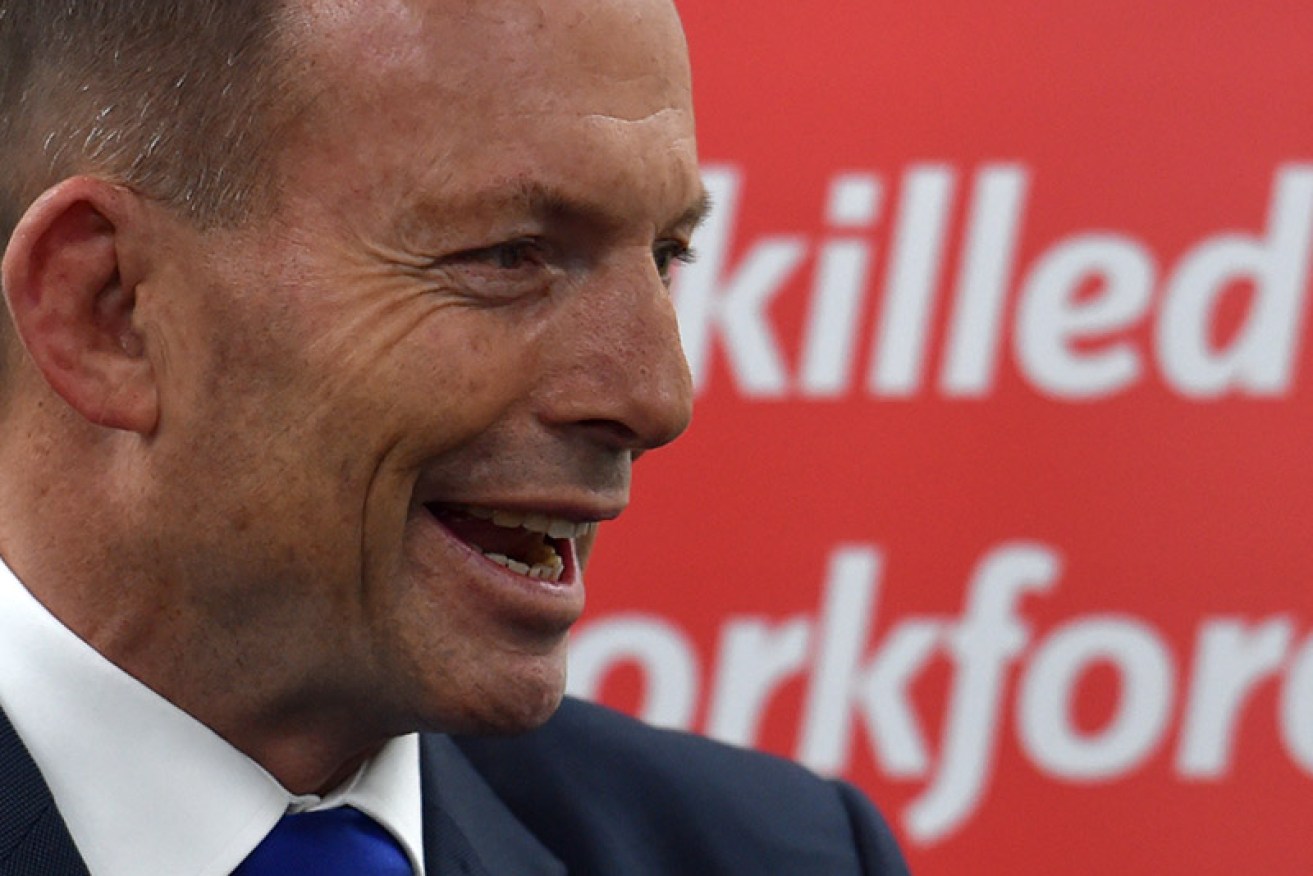Dear PM, stop robbing young Aussies of jobs

On Thursday, the Prime Minister revealed how he got his start in the job market many decades ago.
His first was as a labourer in an enamel factory. His second, as a hotel barman.
“Everyone can be good at something. It’s just a question of finding what that is,” Mr Abbott told the gathered journalists.
• The trick employers use to pay you less
• Your pay packet has been slashed: report
• Here is how your wage compares
He stood in front of a Melbourne job office, his anecdote designed to prove the need for businesses like these. Two family friends helped him get both jobs, but not everyone can be so lucky, Mr Abbott admitted.
What the Prime Minister failed to note was that a job office is useless if there are no jobs going — especially if the few available are being eroded by foreign rorts, employer heartlessness and government-backed attacks on wages.

The 7-Eleven controversy highlights a great problem facing young workers in Australia. Photo: Getty
This week, a joint investigation by the ABC and Fairfax Media revealed allegations that overseas visitors on student visas have been deliberately exploited and underpaid by convenience store chain 7-Eleven.
Condemnation of the franchise has been loud and swift, and rightly so. But as we rage at this injustice, we should also spare a thought for the young Aussie citizens who face barriers to work at all levels of skill.
When the 7-Eleven story was first reported, I recalled my conversation with a taxi driver months earlier. He remembered visiting one of these stores and seeing what he described as an Australian teenager attempt to hand over a resume to apply for a job. The young man was told ‘We don’t hire Australians’, the driver claimed.
The first time I nervously handed over my resume, I was 16. It was a KFC restaurant, not a 7-Eleven, but my reasons for work were probably the same. Like many teens, I was looking for pocket money and work experience.
Luckily, the manager accepted my application, but I can imagine my outrage – and that of my parents – if I had been turned away.
Like many others, I also needed to work before and during university to get by. Retail and hospitality were popular choices for many of my friends. But if the Abbott government has its way, Sunday penalty rates will be removed.

Opportunities for young workers are scarce. Photo: Shutterstock
To make matters worse, those currently trying to enter the workforce, with or without a degree, face bleak prospects. Youth unemployment is currently at 13.8 per cent, the ABS reported in July. (The highest ever was 20.3 per cent in 1992.)
Yes, we should be outraged that overseas students may have been exploited by 7-Eleven. But we should also remember that cheap labour is potentially robbing young citizens of a chance to earn and learn.
Under the law, those on student visas are not allowed to work more than 20 hours per week. But it seems many flout these rules.
Earlier in August, federal police arrested and charged businessmen Baljit Singh, Rakesh Kumar and Mukesh Sharma for allegedly using fake training colleges to supply cheap contract labour to Australia Post.
This came after the ABC revealed in 2013 potential widespread rorting of student and 457 visas through the use of forged documents in India.
Anecdotal evidence suggests these scams are widespread, potentially putting even more pressure on young Aussies.
Even when we try for higher skilled jobs, competition is tough. Unpaid internships are reportedly on the rise, meaning that only those from richer families have a chance of gaining much-needed work experience.
In June, an Adelaide law firm was slammed for attempting to charge young graduates $22,000 to participate in a two-year work placement program, with no guarantee of a salary.
On Thursday, in front of a job office, Mr Abbott promised to “do the pro-jobs thing” at every turn.
I hope he thinks back to his first job as a labourer and is inspired to protect young Australian citizens as well.









